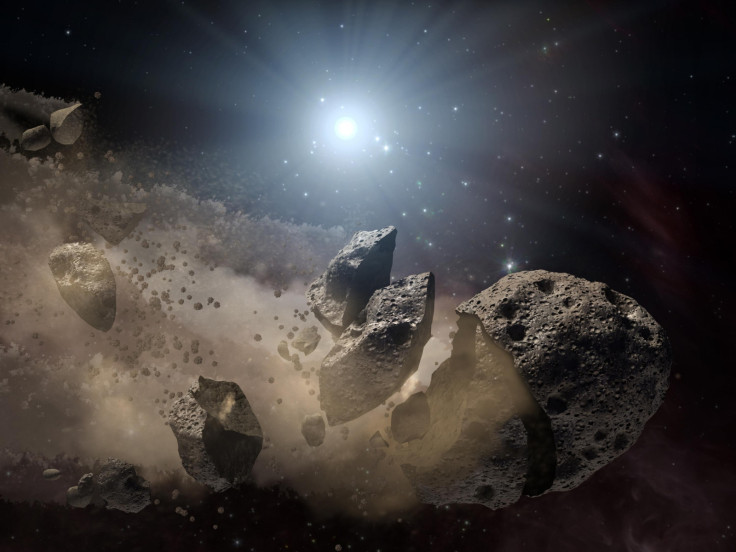Rock cores offer tantalising glimpse into life on Earth after dinosaur extinction
Scientists say microbial life soon returned to the site of an asteroid impact that wiped out 75% of all life.
Scientists have uncovered evidence that microbial life soon returned to the site of an asteroid impact that wiped out the dinosaurs and reset life on Earth.
Analysis of rock cores obtained by drilling into the Chicxulub impact crater off the coast of Mexico's Yucatan Peninsula suggest that a vigorous hydrothermal system – similar to the deep sea hydrothermal vents of today – existed in the area in the wake of the cataclysmic event around 66 million years ago.
Single-celled organisms are believed to have found a foothold in these systems by taking advantage of the chemistry and porous nature of the broken and melted rocks.
An international team of scientists began drilling into the crater in April this year to better understand how bad conditions for life were at the time and how much time they took to recover.
"The borehole has pierced time, bringing us the products of an impact event that changed Earth forever," said David Kring, a geologist from the Lunar and Planetary Institute in Houston.
"With nearly 14 tonnes of rock pulled from the depths of the crater, our team is searching for details about the crater's formation and its effect on the dinosaur's world."
'Fundamental answers'
Around 14 tonnes of rock were recovered from 506m to 1,335m below the modern-day seafloor off the coast of Mexico and sent to the MARUM Centre for Marine Environmental Sciences in Bremen, Germany, for storage and analysis.
Only half of the rocks recovered are being studied at present, with the other half being saved for a time when lab equipment is more advanced than it is now.

There is a scientific consensus that the extinction of the dinosaurs was caused by an asteroid or comet at least 10km (6 miles) in diameter crashing into present-day Gulf of Mexico.
The collision released energy over a billion times greater than the atomic bombings of Hiroshima and Nagasaki and eliminated three-quarters of all life on the planet.
The catastrophic event profoundly altered the course of evolution and led to the rise of mammals and, eventually, mankind.
The drilling expedition to the Chicxulub crater was organised by the International Ocean Discovery Program and the International Continental Scientific Drilling Program.
Prof Sean Gulick, from the University of Texas, told the BBC: "We think that this investigation will give us answers to some fundamental questions that people have been asking for decades, like the energy of the impact, maybe some information about the kill mechanisms that caused the mass extinction, and also fundamentally about how impact processes work [and] how impacts affect all planets in the rock part of the Solar System."
© Copyright IBTimes 2025. All rights reserved.






















